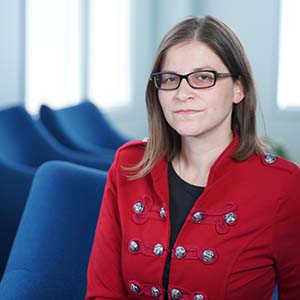Jen Rinaldi, PhD

Associate Professor, Legal Studies
Faculty of Social Science and Humanities
Ontario Tech University
ORCID ID: https://orcid.org/0000-0003-0545-3941
jen.rinaldi@ontariotechu.ca
Dr. Jen Rinaldi is a socio-legal scholar who uses critical arts-informed and participatory action research methods to study violence against persons with non-normative embodiments. Through a research collective she co-founded called Recounting Huronia, she mobilized scholars, students, artists, and intellectually disabled institutional survivors to document survivor-centric histories of institutionalization. Among the collective’s accomplishments, Dr. Rinaldi co-produced two books on the structural conditions that produce institutional violence, an open-access digital archive on the legacy of an Ontario-based institution, and a speakers’ bureau that enabled survivors to address audiences across Canada.
As a founding member, Lead Social Scientist, and Advisory Committee Chair of the Institute for Disability and Rehabilitation Research, Dr. Rinaldi leads research that seeks disability justice through 1) documenting histories of institutional violence, 2) assessing discrimination in clinical encounters, and 3) strategizing abolition and deinstitutionalization.
View Jen Rinaldi's Faculty of Social Science and Humanities profile page.

